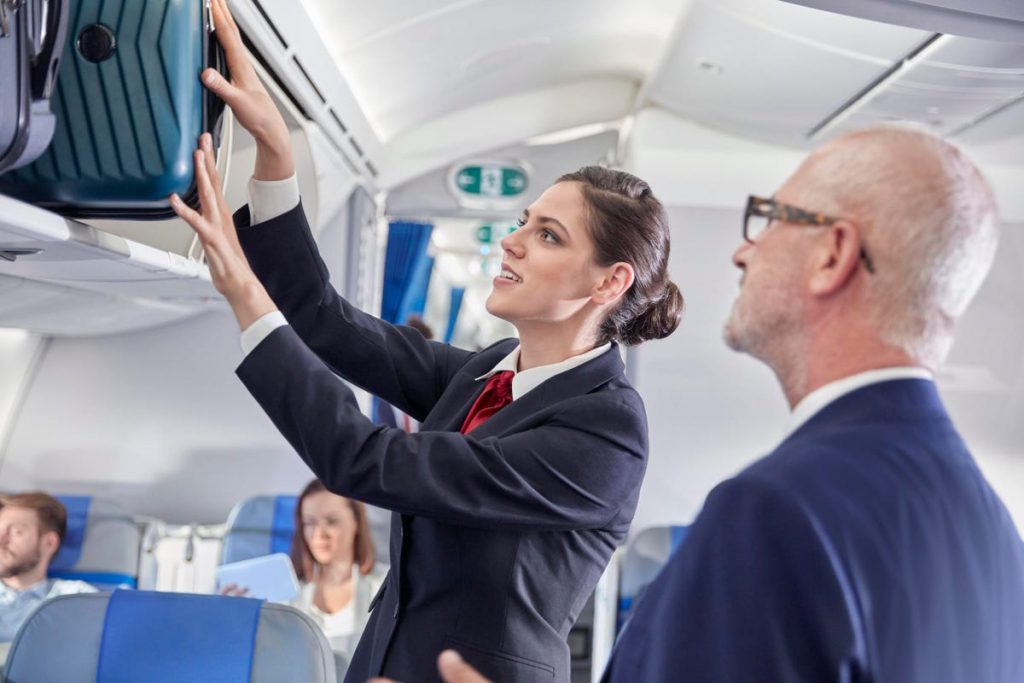
Flight attendants are typically not paid during boarding or deplaning.
getty
Facing increased union organizing efforts, Delta Air Lines said yesterday it will start paying flight attendants during boarding, becoming the first U.S. carrier to do so.
As a norm, flight attendants working for U.S. airlines are paid when the cabin doors close—not for the prior 30 to 50 minutes when passengers are boarding and getting settled on the plane before a flight.
Pilots are also not paid during this time. But unlike flight attendants, pilots do not have to be on board during the boarding process.
In the United States, the median pay for flight attendants was $61,640 as of May 2021, according to data from the U.S. Bureau of Labor Statistics.
Delta Air Lines, the only major U.S. airline whose flight attendants are not unionized, has made no secret of its distaste for organized labor. Still, in recent years, the airline has been in the crosshairs of the Association of Flight Attendants (AFA), which represents 50,000 flight attendants at 20 airlines.
The AFA has tried to organize Delta flight attendants three times in the last 20 years, and lost the vote each time. The last vote was back in 2010, shortly after the Delta merged with Northwest Airlines, and a lot has changed since then. Delta contends that a union remains necessary, citing the “direct relationship” between management and flight attendants.
Delta announced yesterday that, beginning on June 2, the carrier would begin paying its 26,000 flight attendants during boarding at half their usual hourly rate. “Our new boarding pay component – an industry first – further recognizes how important your role is on board to ensuring a welcoming, safe and on-time start to each flight and for each customer,” the company said in a memo flight attendants.
Flight attendants’ wages are based on seniority. For a newly hired Delta flight attendant making $32.20 an hour, a 40-minute boarding period on a narrow-body domestic flight would translate to an additional $10.79 earned, according to the company. For a more seasoned Delta flight attendant with 10 years experience, earning $59.66 an hour, the same 40-minute boarding would add $19.98 in wages. For cross-country and international flights on wide-body aircraft, the boarding time is generally longer.
The Association of Flight Attendants sees Delta’s boarding-pay overture as a sign that it is doing something right. “It seems they are feeling the heat. Keep going!” said the AFA in a statement. “Let’s celebrate that our organizing is pushing management to do more than they would have without being challenged.”
The AFA is warning Delta flight attendants that, without a contract, the airline can cancel the boarding-pay at any time. “Management holds all the cards,” said the AFA. “Earning more is always good – and we’ll take it. But our quality of life is what’s suffering right now!”
Delta’s flight attendants are mulling their options at a time when organized labor appears to be having a moment. In 2021, union membership had declined to just 10.3% of the American workforce—about half of what it was in 1983. But petitions to form unions shot up 57% in the last six months, according to the National Labor Relations Board, buoyed by high-profile campaigns at Amazon, Starbucks, John Deere, Kellogg’s and REI. Meanwhile, labor unions are also enjoying the most public support since 1965, with two in three Americans now saying they approve of them, according to Gallup.
Follow me on LinkedIn. Check out my website. Send me a secure tip.
